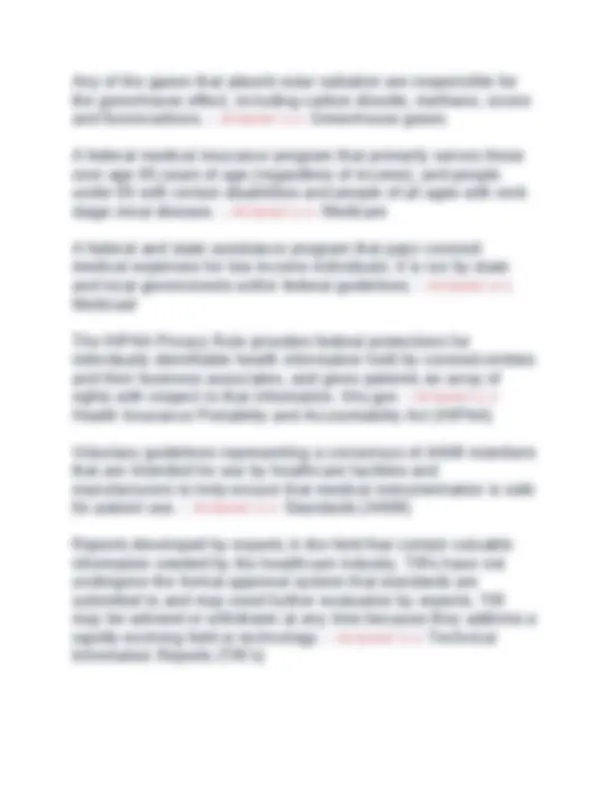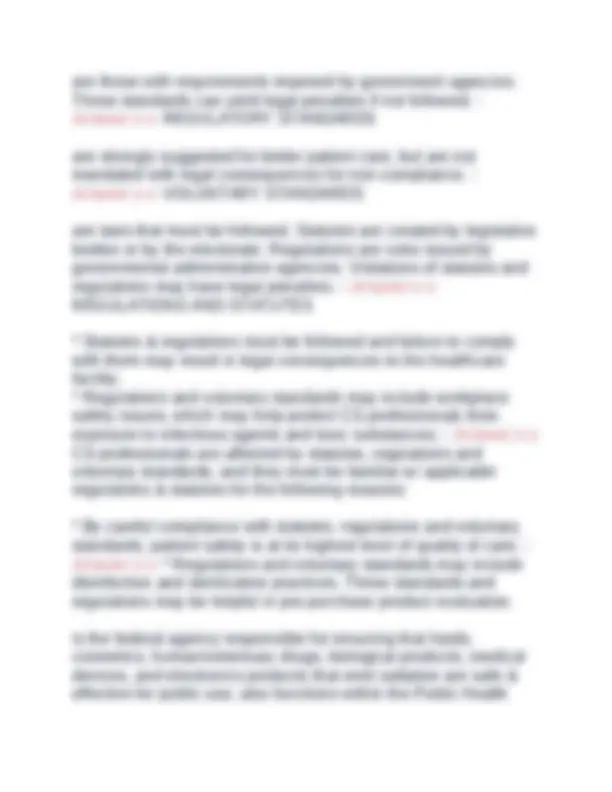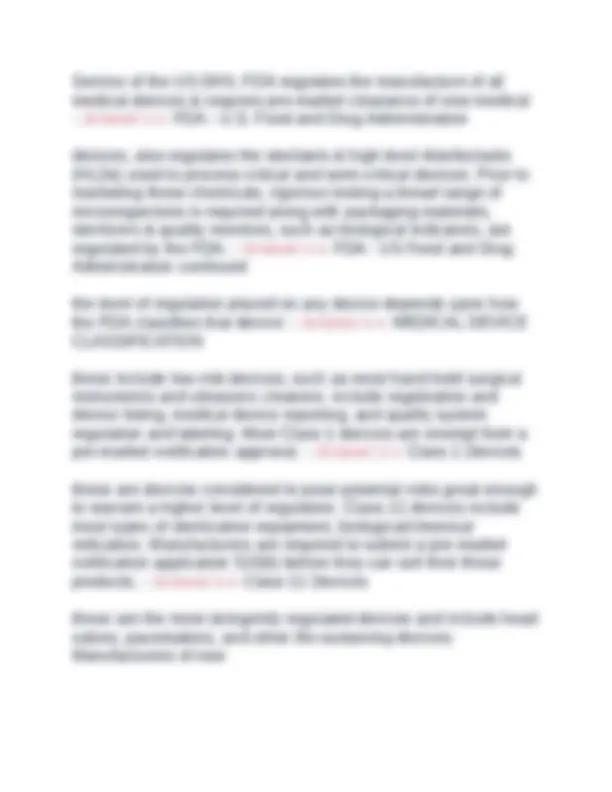





Study with the several resources on Docsity

Earn points by helping other students or get them with a premium plan


Prepare for your exams
Study with the several resources on Docsity

Earn points to download
Earn points by helping other students or get them with a premium plan
Community
Ask the community for help and clear up your study doubts
Discover the best universities in your country according to Docsity users
Free resources
Download our free guides on studying techniques, anxiety management strategies, and thesis advice from Docsity tutors
A comprehensive review of the key regulations, standards, and guidelines that healthcare professionals, particularly those in the central sterile processing (cs) field, need to be familiar with. It covers important topics such as statutes, regulations, voluntary standards, medical device classifications, pre- and post-market requirements, and the roles of regulatory agencies like the fda, cdc, dot, and epa. The document aims to help cs professionals ensure patient safety and quality of care through careful compliance with the applicable laws, regulations, and best practices. It includes a detailed question-and-answer section to reinforce understanding and prepare for exams. Overall, this resource is a valuable study guide for healthcare professionals seeking to deepen their knowledge of the regulatory landscape and its impact on their daily work.
Typology: Exams
1 / 7

This page cannot be seen from the preview
Don't miss anything!




David Mungai [Date] [Course title]
A written law adopted by a legislative body that governs a city, county, state or country. - Answer>> Statute Rules issued by administrative agencies that have the force of law. - Answer>> Regulation A uniform method of defining basic parameters for processes, products, services and measurements. - Answer>> Standard A comparison benchmark that is mandated by a governing agency. Noncompliance with regulatory standards may lead to citations and legal penalties. - Answer>> Regulatory standards Guidelines or recommendations for best practices to provide better patient care. Industry, nonprofit organizations, trade associations and others develop these. - Answer>> Voluntary standards A method or technique that has consistently shown results superior to those achieved by other means. - Answer>> Best practice A safety information & adverse event reporting system that serves healthcare professional and the public by reporting serious problems suspected to be associated with the drugs & medical devices they prescribe, dispense or use. - Answer>> Medwatch
are those with requirements imposed by government agencies. These standards can yield legal penalties if not followed. - Answer>> REGULATORY STANDARDS are strongly suggested for better patient care, but are not mandated with legal consequences for non-compliance. - Answer>> VOLUNTARY STANDARDS are laws that must be followed. Statutes are created by legislative bodies or by the electorate. Regulations are rules issued by governmental administrative agencies. Violations of statutes and regulations may have legal penalties. - Answer>> REGULATIONS AND STATUTES
Service of the US DHS. FDA regulates the manufacture of all medical devices & requires pre-market clearance of new medical
Answer>> (EPA) U.S. ENVIRONMENTAL PROTECTION AGENCY